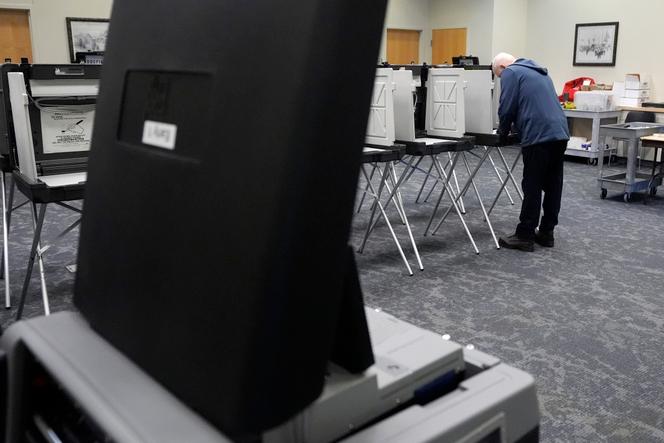


President Joe Biden and former President Donald Trump won the Michigan primaries on Tuesday, February 27, further solidifying the all-but-certain rematch between the two men.
Both campaigns are watching Tuesday's results for more than just whether they won as expected. For Biden, a large number of voters choosing "uncommitted" could mean he's in significant trouble with parts of the Democratic base in a state he can hardly afford to lose in November. Trump, meanwhile, has underperformed with suburban voters and people with a college degree and faces a faction within his own party that believes he broke the law in one or more of the criminal cases against him.
The robust grassroots effort, which has been encouraging voters to select "uncommitted" as a way to register objections to his handling of Israel's ongoing war in Gaza, has been Biden's most significant political challenge in the early contests. That push, which began in earnest just a few weeks ago, has been backed by officials such as Democratic Representative Rashida Tlaib, the first Palestinian American woman in Congress, and former Representative Andy Levin. Our Revolution, the organizing group once tied to Senator Bernie Sanders, had also urged progressive voters to choose "uncommitted" Tuesday, saying it would send a message to Biden to "change course NOW on Gaza or else risk losing Michigan to Trump in November."
Trump's dominance of the early states has been unparalleled since 1976 when Iowa and New Hampshire began their tradition of holding the first nominating contests. He has won resounding support from most pockets of the Republican voting base, including evangelical voters, conservatives, and those who live in rural areas. But Trump has struggled with college-educated voters, losing that bloc in South Carolina to Haley on Saturday night. Even senior figures in the Republican Party who have been skeptical of Trump are increasingly falling in line. South Dakota Sen. John Thune, the No. 2 Senate Republican who has been critical of the party's standard-bearer, endorsed Trump for president on Sunday.
Still, Haley has vowed to continue her campaign through at least Super Tuesday on March 5, pointing to a not-insignificant swath of Republican primary voters who have continued to support her despite Trump's tightening grip on the GOP. She also outraised Trump's primary campaign committee by almost $3 million in January. That indicates that some donors continue to look at Haley, despite her longshot prospects, as an alternative to Trump should his legal problems imperil his chances of becoming the nominee.
